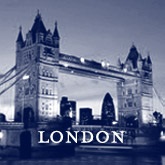European Commission Slams Cargo Train Operators With 49 Million Euro Fine In Cartel Settlement

A View from Constantine Cannon’s London Office
By Yulia Tosheva and Richard Pike
The European Commission (“EC”) today imposed fines totalling 49,154,000 euros on Express Interfracht, part of the Austrian railway company Österreichische Bundesbahnen, and Schenker, a subsidiary of the leading German railway operator Deutsche Bahn, in a cartel settlement.
Express Interfracht and Schenker agreed to pay fines of 31,798,000 million euros and 17,356,000 million euros, respectively. Although Kuhne+Nagel also participated in the cartel, it received full immunity for revealing the conspiracy to the EC.
The three companies engaged in a number of anti-competitive practices in the market for cargo “blocktrain” services, including:
Allocation of existing and new customers.
Exchange of confidential information on specific customer requests and transport volumes contracted by customers.
Price-coordination by exchanging cover bids in respect of customers.
The infringement lasted nearly eight years from July 2004 until June 2012.
“Blocktrains” refers to a rail shipping system that transports cargo between hubs without wagons being split up or stored on the way. Blocktrains are, in principle, more economically efficient than traditional rail cargo transport, especially for single commodity shipping. The service saves money and time for customers, in particular if they have large volumes to transport. The blocktrains covered by the cartel were the Balkantrain, which connects Western and Central Europe with Southeast Europe, and the Soptrain, which connects Central Europe with Romania. Both were jointly operated by Express Interfracht, Schenker and Kuhne+Nagel.
Express Interfracht and Schenker received reductions of their fines under the EC Leniency Notice for cooperating with the investigation. Since all three companies agreed to settle the case with the EC, the fines were further reduced by 10%.
European Commissioner for Competition Margrethe Vestager expressed her disappointment that “a project to enhance transport efficiency and promote environmentally friendly cargo transport was derailed into a cartel. The European Union needs rail cargo markets to function efficiently on the basis of effective competition and not to be hijacked by vested interests to the detriment of customers.”
The freight industry has faced increased antitrust scrutiny in Europe over the last five years. On March 28, 2012, the EC fined 14 international groups of companies, including Deutsche Bahn, a total of 169 million euros for participating in four cartels aimed at fixing prices and other trading conditions in international air freight forwarding services.
Purchasers of the affected freight services could potentially pursue compensation either in the courts of their home jurisdiction or where the defendants are based.
– Edited by Gary J. Malone
Categories: Antitrust Enforcement, International Competition Issues
